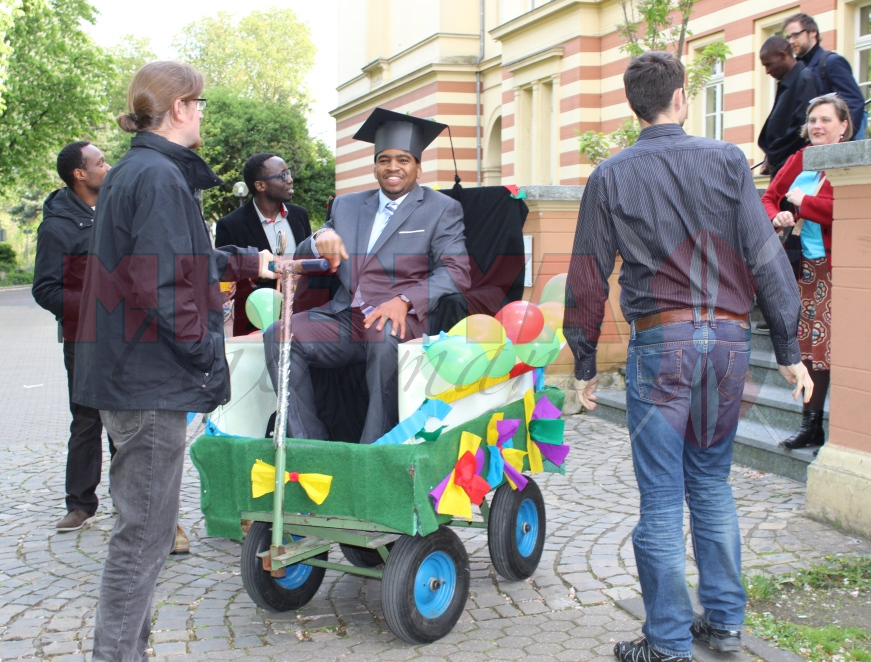
From its repute for manufacturing world-renown automobiles, Germany is regarded by many as a land of efficiency and super-perfection. That vision does not disappoint however way you look at it.
Many international students are attracted to the Germany universities because of this high quality of the country’s education system. For these first-time students, the first unforgettable experience is their maiden encounter with the precision of German systems, starting with the efficient clearance processes at Frankfurt am Main Airport (Rhein-Main-Flughafen).
Recently, I joined this growing community of intellectual nomads eyeing Europe as the core of higher education research, and Germany as the inevitable centre of this academic enterprise. After all, it is not a coincidence that many world-renown philosophers, logicians, and thinkers came from this country – there must be something that Germans do right and better, to breed so many global intellectuals. And if you are reading this post, it is because you also believe the same, just like I do.
So it was, as I boarded the bus from the Frankfurt am Main international airport to Frankfurt (Main) train station, that I was awed at the efficiency of the Germany transport system where every boarding and alighting is timed. Then came the sound of the Inter-City Express (ICE) train as it hissed into the station showing no sign of effort with its characteristic up to 300 km/h speed.
Boarding one of these amazing machines full of Germany’s finest technology was like entering a new planet (not kidding, hehehe). That’s how I felt as I sat in the Frankfurt-Leipzig ICE on a sunny afternoon heading to start a new adventure, admiring the green forests race past! That was one fine and lasting memory. But I remember even more the ones I left behind. Those talented minds, burning eyes, restless hearts yearning for a day to burst and nourish some knowledge gap somewhere.
Coming from Kenya, I know there are many well talented students out there struggling to find a way to actualize their academic dreams abroad. Germany is among the most favoured study destinations in the world due to its vast network of academic institutions and high quality research. As I have come to learn, the reason education quality is so good here is because those who are in the system are talented and hardworking: Professors and Researchers who work tirelessly to expand knowledge areas and conquer new fronts in all academic disciplines.
So, how can you join this vibrant team of scholars?
#1 Do you have what it takes?
Does a stack of fat-looking library books on the shelves scare you? Or a folder with thousands of e-journals and books? Is the warm blanket at night your most valued time every day? Then you may just not be inclined for the rough ride that higher education research in Germany universities entail. I am yet to meet an accomplished researcher who has never sacrificed sleep and read through cold nights, with only books for company. This, I have come to believe, is not a coincidence but a requirement.
You can wish all you want, but if you do not have the mental stamina to stand on your own backbone and face the academic world as an independent researcher, you are not ready for higher education study in Germany. The journey towards a higher degree starts way before the actual study period, usually a year or so before. You must identify a research area and have a research topic. You then have to write an acceptable proposal which shows sufficient motivation and ability to carry out independent research.
In my own assessment, the single most important determinant of your ability to study successfully in Germany is purposed dedication to hard work. German professors are really good and helpful, willing to show you the path and point you in the right direction. But you have to take the walk on your own. From the interaction with my professor since I was in Kenya to date, it is clear that German scholars are very excited about their research. They dispense huge effort to pursue their academic dreams and laziness has no place in the German scheme of things, including the academic systems where at the postgraduate level one is expected to deliver quality research work which shows significant personal input and contribution to the discipline of specialisation. And there are no two ways about the quality research agenda – you must do it.
#2 Who will supervise me?
So you have what it takes? Good. One half of the equation is solved. The other half is no easy task either. Looking for and finding a supervisor who will supervise you is the next very important requirement for Doctoral students in Germany universities. As early as during your proposal level, look out for Professors who will be willing to take you in and supervise your research work. This is the single most important step, especially when you wish to look for sponsorship. Without a Professor to supervise you, you are not going to be able to do a PhD in Germany, as your admission to any university’s Doctoral program mostly requires that you have a Professor willing to supervise your work.
How do you get the professor then? It is open truth, no one would like to devote time pushing a lazy student. Nor has anyone that spare time. To weed out the potential push-cases, most supervisors therefore require demonstrable proof that a potential student is self-driven and has enough stamina to undertake the otherwise demanding Doctoral studies. It is prudent then, that you demonstrate your academic ability as a pre-requisite for getting a supervisor. Your proposal and academic referees play a key role here. Most professors will be happy to have you as soon as they are sure you are not a push-case.
#3 Funding.
So far so good. You have the ability. You have the supervisor. So what’s next? Money.
You have heard that education in Germany is free, and that is largely so. You will be required to pay matriculation fees, nevertheless. The biggest challenge is financing your stay here. You can either be self-sponsored or get a sponsor. There are also scholarships available to help talented young researchers from around the world. German Academic Exchange Service, DAAD, is the biggest scholarship body in this category. You can start looking for your funding through the organisation’s website accessible by clicking HERE.
One final word, irrespective of where you come from, or who you are, you can make it to study in Germany if you want to.
Good luck!
By Adams Mututa, a Kenyan doctorate student at the Eberhard Karls University in Tübingen.






